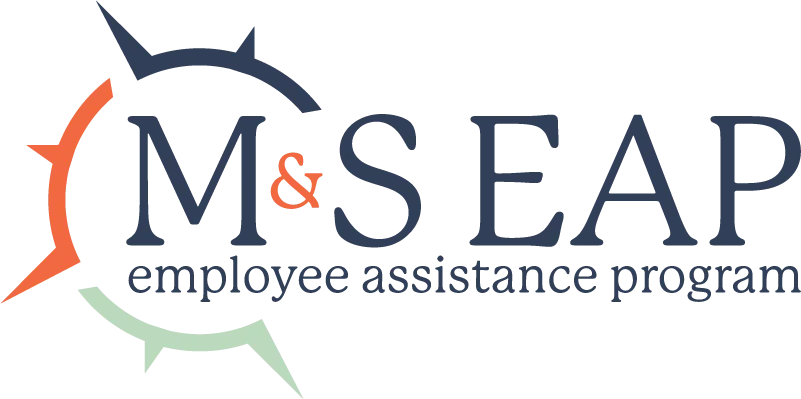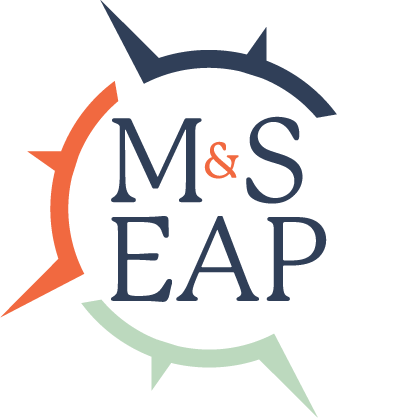Managing Challenges Successfully: Physician, Heal Thyself. From the (Virtual) Desk of Chuck Mazzitti

Now that we have examined many different aspects of caring for your business and your employees, it is time to examine one more area of major concern as we navigate these uncharted waters. Although it may sound cliché, it is also very true: you cannot take care of others, properly and for any length of time, unless you first take care of yourself. If you are operating at 50% physically, mentally or emotionally, you cannot give your best to your business, your employees, or your family. One of the problems many of us face is our inability to recognize what this new stress is doing to us. It is continuous. There is no day off. If we allow it, we are constantly bombarded with news and opinions about this pandemic. The effects of this stress are cumulative, like radiation…they slowly build up, and affect us in ways that we do not recognize right away. Because none of us has been in a situation like this before, we have little experience to rely on. This uncertainty about what is happening and what might happen creates even more stress. Not “being in control” exacerbates it further. This pandemic is happening to us. It is not something we created or prepared for. Self-doubt creeps in as we try to make the right decisions for our families, our businesses, and ourselves. Are we making the right decisions? What is the best way to deal with all this? Whom can I turn to for answers? We have examined all of these questions. Now we need to answer them as they apply to our own well-being.
Perhaps the best way to start this process is to take stock of where we are. Let’s start with an overall personal checkup:
- How do you feel physically? Is your blood pressure where it needs to be? Your heart rate? Are you taking any prescribed medications as directed?
- Are you getting enough sleep? Is it continuous, or do you find yourself waking up several times because of the stressors you experience all day?
- Are you eating the right things at the right times? There is a lot of talk about the “quarantine fifteen” out there. People are stress eating their way through this crisis. Some of us are eating less, but not as many.
- Has your alcohol consumption increased since the pandemic started? Is it possible you are self-medicating with alcohol or drugs?
- How are your interactions with others? Do you maintain an even keel, or has it become apparent that you have a shorter temper? Do you find yourself being increasingly irritable? Are you easily aggravated?
- What about your ability to focus on things? Can you concentrate on working through issues, or do you find yourself feeling overwhelmed when issues start to pile up? Do you find yourself constantly worrying about “what if”?
- Are you still able to laugh at things that you find funny? Can you laugh at yourself when you do something stupid? Or is everything a compounding tragedy?
I ask you to look at yourself with the same “clear eyes” you need when looking at your business operations. Honesty is very important here. If you cannot get it from yourself, ask someone you trust to tell you the truth. Deluding yourself into thinking things are just fine will not help you make a corrective action plan if one is needed.
Once you have done a self-assessment, focus on making positive changes in the areas you have identified that need the most attention. We all know that exercise reduces stress. You don’t have to walk a marathon, but do something physical that gets you moving. Cut the grass. Work in the garden. Walk through your favorite local wildlife area. Go up and down the stairs. Whatever form this takes for you, get off your computer and off the couch. Find something you enjoy doing that has a physical component to it. It can help mitigate the effects of the stress.
Be careful with alcohol and drugs. They can become an emotional crutch during times like these. There is a tendency to use alcohol and other mood altering drugs to cope with stress. Vigilance is important. I remember an old Native American warning about alcohol use and abuse. It went like this: “First the man takes a drink. Then the drink takes a drink. Then the drink takes the man.” Be careful here. Alcohol sales are at record levels. Monitor your consumption.
Together, we can get through this crisis. However, we cannot stagger through it alone.
One recommendation that might work well as part of your self-care plan is to find someone who can be a sounding board for you. This can be a spouse, partner, friend or colleague. It is good to talk through the stressors we feel and to discuss how the uncertainty of what we are facing is affecting us. Physical, mental, emotional and financial insecurity has replaced our innate need for safety and stability. You need to talk about this, and look at it. Your sounding board does not have to be able to solve all of your concerns and challenges. They just need to listen. They also need to care. And – you need their permission to be that sounding board. One final note on this: You may have very strong feelings about what is happening to you and/or your business. You DO NOT have permission to take those feelings out by simply dumping all of your frustration, anger and fear on your sounding board. They are a support for you, not a scapegoat for what is wrong. This happens too often with people we care about. They do not deserve it. Stop it and apologize if it happens.
Get a mentor. This can be a business colleague you can trust to share your hopes, dreams, fears and ideas. Collaborating with someone can give you new ideas, and give validity to some you may already have. Preferably, it should be someone who has been around the block and can bring experience and insight to the table. Someone who is not afraid to tell you when you are straying off base. Someone who has enough humility to share his or her mistakes and failures. Both the sounding board and the mentor have another specific function: to help you deal with the isolation that is inherent in managing this crisis. It is lonely at the top. You have the public, the clients and your staff all looking to you for leadership. You need to be an anchor and a port in the storm. Because the pandemic decreases our opportunities for personal, human interaction, the negative effects of this isolation compound our stress further. You need to address this reality. Just as you are the one your staff is looking to for support and leadership, you need to do the same with your support team.
Spend time each day planning. Plan the things you will do to take care of yourself. Plan the things you will do to take care of loved ones and others you care about. Plan the work you need to get done for your business today. Planning gives us a sense of regaining control when everything seems out of control. We then find ourselves moving toward being able to navigate and manage rather than just react. Yes, there will be curveballs. But having a plan in place makes it easier to get back on track once the curveballs are dealt with.
Remember that you do not have to do everything yourself. Utilize the talents around you at work and at home. Those people have skill sets that you do not, and their experience and insights can be invaluable in sharing the load and planning the future. Involving others in the planning and execution allows them to start regaining control and helps them cope with this crisis also. Do not ignore these resources. They can help you, and help themselves in the process. Everyone benefits from this approach.
Find things that lighten your mood. One of the ways we gauge a client’s progress is by their ability to laugh at things, including themselves when they do something silly or stupid. Being able to laugh at our mistakes and missteps shows humility and acknowledges our humanity. How do we do this? Maybe relive some old stories about adventures from the past that you found funny. Everyone has these stories. Take time to recapture them with those who were part of those adventures, or share them with friends and family who have not heard these stories. Doing this can lighten our mood, and remind us that things were not always as tense and stressful as they are now. This helps us reframe the present into a larger context. It can also connect us with others we may not have talked to in a while.
Finally, remind yourself that this is temporary. It can be impossible to see beyond the current crisis we are in, but at some point, it will end. Things will return to a new normal. Probably not the same as it was. In some ways, it may actually be better. We will also probably lose some of the people and things that we loved and cherished. The future may look different, but there will be a future. If that thought scares you, try to think about it this way: The past year looks very different from one 30, 40 or 50 years ago when you compare them side by side. So much has changed over the years. New technologies have evolved. New products and services have been developed. Many of the businesses from the past 40 years are now gone. Some of the current changes happening in our lives were going to happen anyway. This pandemic simply accelerated the timetable.
So we get to decide who we will be and what we will be going forward. Do we crawl in a hole? Put our head in the sand and shake our angry fist at the world? Or will we become the leaders these times demand for all of us to succeed? We are resilient. We are accountable. We are survivors. We are builders, innovators and creators. If we take care of ourselves, we will have the strength and energy to take care of everyone and everything else. But we must do things in the right order. Remember, the stars looks brightest when the night is darkest.



